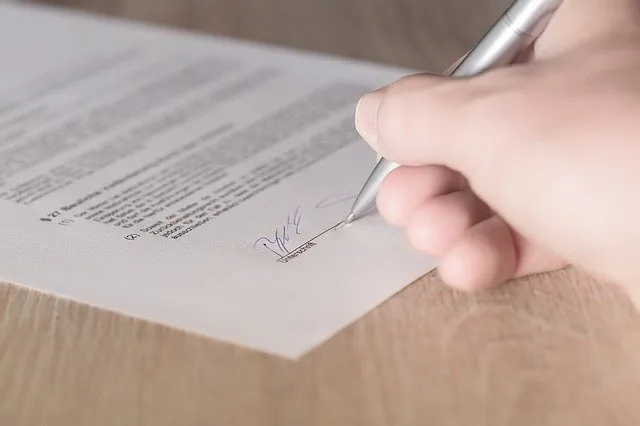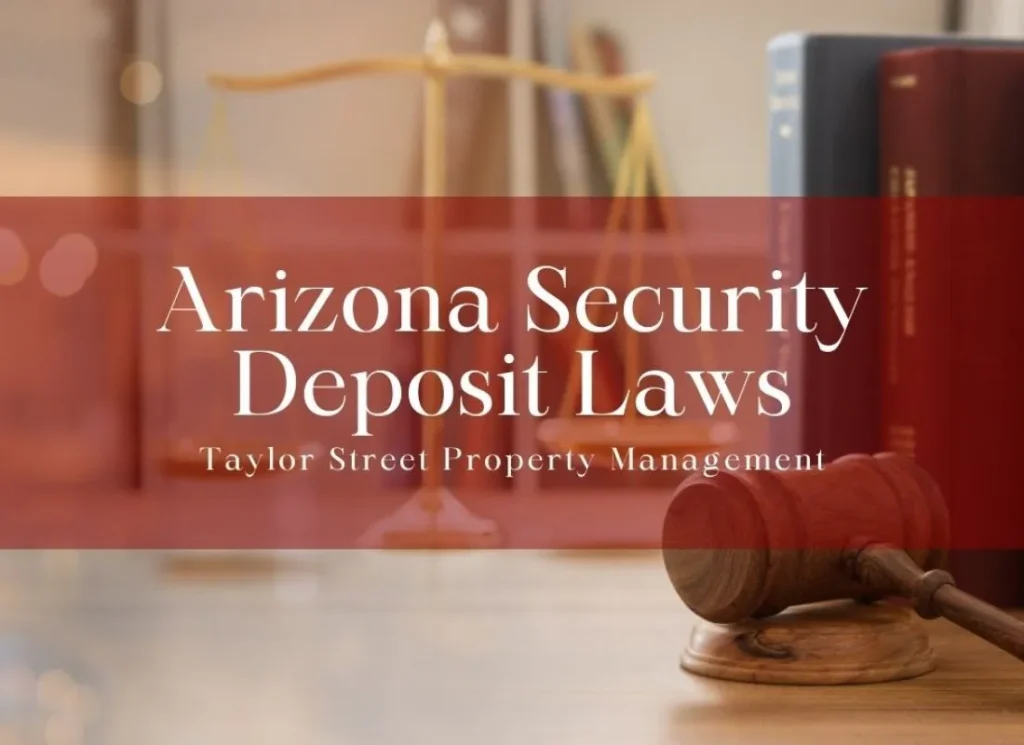Arizona landlords have a right to require a security deposit from their tenants, and understandably so. Tenants’ security deposits help shield them to some extent against liabilities, such as unpaid rent, that may arise during the course of a tenancy.
An example of a liability is property damage by a tenant. Generally, landlords expect their tenant to leave the rental unit the same way they found it, aside from normal wear and tear. Examples of damage exceeding normal wear and tear include:
- Stained carpet and linoleum
- Wall drawings
- Broken or missing bathroom tiles
- Chips and burns in laminate countertop
In such cases, a landlord would have a right to make the appropriate deductions from the renter’s security deposit to fix the rental property.
With that in mind, landlords must adhere to the security deposit laws in Arizona and all other Arizona Landlord Tenant Laws. The following is a basic overview of Arizona’s security deposit laws.
Security Deposit Limit in Arizona
Arizona security deposit rules place a limit on how much landlords can ask from their renters in Arizona as a security deposit. Specifically, as a landlord, you must charge them no more than 1.5X month’s rent as a security deposit.
For example, with a month’s rent price of $1,300 per the lease, the maximum a landlord can charge for a deposit shouldn’t exceed $1,950.
Non-Refundable Deposits in Arizona
Non-refundable security deposits are allowed in the state of Arizona. Per Arizona law, the only requirement is that a landlord put them in writing. If the landlord fails to do so, then by default, all of their renter’s security deposit will be regarded as refundable at the end of their lease agreement term.

In addition to putting this in writing, Arizona landlords must also state the purpose of the nonrefundable fees and secuirty deposits. Common non-refundable deposits are a pet fee. Its purpose is to shield you against any potential property damage from your renter’s pet.
Storing a Tenant’s Security Deposit in Arizona
Some states have special requirements in regard to how a landlord must store their tenants’ security deposits.
So, does this apply to the state of Arizona? Not at all. A landlord can store their tenants’ deposits in any way they like, a vast difference from many other states that require the security deposit to be stored in an interest-bearing account.
What’s more, unlike in many states, you may even be able to use the deposit to cover certain situations specified in your lease agreement. However, you must ensure the deposit funds are available to the tenant once they move out.
Arizona Security Deposit Deductions
It’s important to ensure your tenant’s deposit isn’t wrongfully withheld as this can cause legal issues for landlords. However, there are certain circumstances that can enable you to keep part or all of a tenant’s security deposit. The following are the most common deposit deductions:
- To cover lost rental income. You, as the landlord, may incur some losses when your tenant breaks their lease or rental agreement early or abandons their rental. To recover losses related to rent money at the end of a tenancy, you may be able to make appropriate deductions on the renter’s deposit
- To cover losses in rent payments. A common breach of the signed lease agreement or rental contract is the nonpayment of rent. Should you lose rent money this way, you may be entitled to part or all of a tenant’s deposit to cover unpaid rent.
- To pay for an excessive cleaning fee. A tenant must leave their rental premises in the exact same condition they found it, minus normal wear and tear. But if the tenant chooses to leave their premises in a dire state of uncleanliness, then you may be able to make the appropriate security deposit deductions after finding issues during the move-out inspection.
- To pay for unpaid utilities upon moving out. Normally, most – if not all – of the utilities will be in the renter’s name per the lease. If the tenant fails to pay them, you may be entitled to a portion or all of their security deposit
- To pay for excessive property damage repairs. Examples of tenant damage exceeding normal wear and tear include chipped or broken tiles, chipped countertops, holes in the walls, and unauthorized paint colors

Walk-Through Inspections
Tenants in Arizona have a right to a walk-through inspection. But tenants are only entitled to that right if they inform the landlord of their desire to be present beforehand.
You can choose not to allow your tenant to be present during the walk-through inspection for two reasons: if you’re in the process of evicting the tenant or if you fear for your own safety.
The purpose of a walk-through inspection is to assess the property’s condition relative to the move-in state. If there are any excessive damages beyond normal wear and tear in the rental property, the tenant must fix them before finally moving out.
If the tenant doesn’t fix the issues on the property, then you’ll have a right to make the appropriate deductions from their security deposit.
Security Deposit Receipt
While some states require that landlords give written notice on receipt of the tenant’s security deposit, this does not apply in the state of Arizona.

That being said, most landlords still notify their tenants anyway. In the deposit notice, they include details like the amount received, and what the tenant must do in order to get it back.
Security Deposit Returns
Once your tenant leaves, you have 14 days to return the security deposit either in part or in full. The 14-day period only begins after the following conditions have happened:
- The tenant has requested that their deposit be returned to them
- The tenant has vacated the premises and returned the keys back to the landlord
- The lease has ended or been terminated
After all these conditions have been met, you may then return the security deposit (or whatever remains of it) to the tenant’s last known mailing address. Your tenant will then have 60 days to dispute any deductions you may have made.
Bottom Line
Under Arizona landlord-tenant law, security deposits have many requirements that landlords must follow. However, compared to most states, Arizona is quite flexible with its rules and regulations. As a landlord, you should also stay up-to-date on the legal eviction process, squatters’ rights, and leasing laws.
Should you have any questions on security deposits or any other aspect related to renting out your property, don’t hesitate to contact Taylor Street Property Management!
Disclaimer: This blog isn’t meant to be a substitute for professional legal advice. Laws change and it might not be up to date at the time of your reading. If you have any questions or need further help, please consider hiring a qualified attorney or contact an experienced property management company like us directly.


